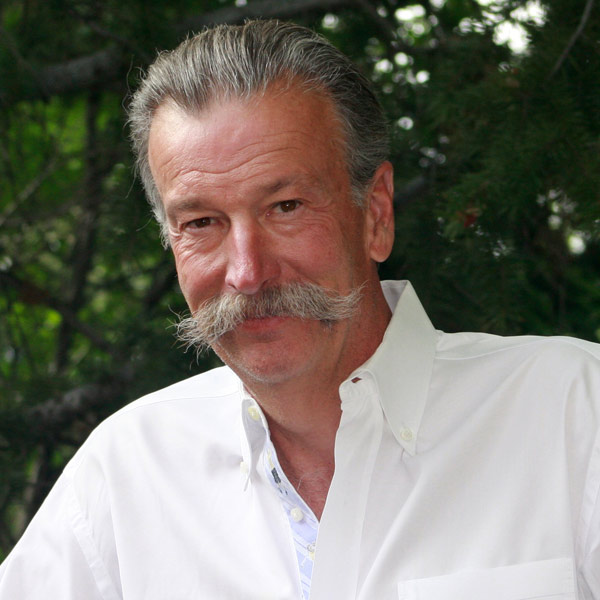 The kids are back in school and nights are getting cooler, Snowbird reminds us that it is time for Oktoberfest and it’s about more than just bending elbows. Oktoberfest at Snowbird is a family-friendly affair with activities, food, and, of course, brews for days — weeks actually. The highly-anticipated festival is now open and lasts through mid-October, taking place every Saturday and Sunday. It’s probably the greatest beer festival Utah has to offer, so don’t miss out! Snowbird’s Oktoberfest attracts thousands of visitors each year making it one of the largest festivals in Utah. Admission to Oktoberfest is free and the event runs from Noon - 6 pm.
The kids are back in school and nights are getting cooler, Snowbird reminds us that it is time for Oktoberfest and it’s about more than just bending elbows. Oktoberfest at Snowbird is a family-friendly affair with activities, food, and, of course, brews for days — weeks actually. The highly-anticipated festival is now open and lasts through mid-October, taking place every Saturday and Sunday. It’s probably the greatest beer festival Utah has to offer, so don’t miss out! Snowbird’s Oktoberfest attracts thousands of visitors each year making it one of the largest festivals in Utah. Admission to Oktoberfest is free and the event runs from Noon - 6 pm.
The origins of Oktoberfest date back to 19th-century Bavaria, when King Ludwig called for a state fair in Munich to celebrate his autumn marriage. Here in Utah, it wasn’t until 1973 — 2 years after Snowbird opened — when the festival took root.
The annual festival includes a biergarten offering more than 50 varieties of beer. This includes traditional German-style beers and those made by Utah breweries, including Moab Brewery, Bohemian, Uinta and Squatters. Oktoberfest food choices include select German favorites, such as bratwurst, weisswurst, sauerkraut, apple strudel, spaetzle, beef rouladen, pretzels and Bavarian roasted almonds.
Coming up September 13-14 Park City becomes home to "The Best Little Mountain Music Festival in America". The Utah Daily Chronicle shares Park City Songwriter Festival Focuses on the Storytelling of Music. The inaugural Park City Songwriter Festival, crafted for devoted listeners of America’s greatest musicians, was founded in-part by songwriter Aaron Benward as a celebration of his favorite aspects of songs and the intimate stories behind them.
Benward is no stranger to the bright lights and big stages of the music industry. He first entered the music scene as a Christian Contemporary artist as part of a father-son duo, Aaron Jeoffrey. The two released several studio albums and produced numerous chart-topping singles before Benward debuted as a solo act with his album “Imagine.” Even with his music’s acclaim, Benward remains passionate about the closeness of songs and connecting listeners to what he calls, “the heroes of music — the songwriters.” This drive inspired his co-created “Nashville Unplugged: The Story Behind the Song” events, where listeners and musicians alike share their love for music.
It’s fitting, then, that the Park City Songwriter Festival was dreamt up in the same way. In tandem with friends Ben Anderson and Scott Thompson, Anderson has been developing the event since January 2018. Anderson’s focus remains in promoting concerts for music lovers, as the president of the non-profit Mountain Town Music and bassist in his own Nashville band Aiko. Thompson, as a music fan himself, owns two of the venues on Main Street — O.P. Rockwell, where Western music hall meets Victorian speakeasy, and the Rockwell Listening Room, converted to an up-close and personal venue.
Though this celebration of country and folk music takes place away from the music’s Nashville roots, Benward describes Park City as the perfect location for the event. “This is the perfect spirit and environment to experience music in its most organic form, with the venues all located along Main Street.” Patrons can easily move through downtown Park City and the unique atmospheres of five distinct venues — something that could only work in the heart of one of Utah’s most popular destinations.
However, the personal environment of the festival shouldn’t lure attendees into overlooking the sheer talent of the lineup. Featuring spectacular headliners like “bayou soul” artist Marc Broussard, New-Orleans based guitarist Anders Osbourne and long-running band the North Mississippi AllStars, the festival artists — over 40 in number — boast a combined total of 17 Grammy wins, 12 Academy of Country Music Awards, 11 American Country Awards wins and five Hall of Famers, among many other accolades.
The PCSF has even partnered with outreach organizations such as the Recording Academy’s MusiCares and Osbourne’s Send Me a Friend to support professionals in the music industry, placing a charity focus on the festival to help artists struggling with mental health issues or addiction recovery that often go unnoticed.
One cornerstone of the PCSF that makes it different from any other festival is its honesty. Founded by music lovers, to share music’s bare-bones and to connect talented storytellers to their listeners, the atmosphere of the event is sure to be magical. As Benward said, “There’s nothing like being up close and personal to music at its core – the song. No smoke and mirrors, no lights and walls of sound. Just the songwriter on a stool with their instrument of choice, up close and personal.”
The festival will be held on Sept. 13-14 on Main Street in Park City, Utah. The two-day event features dozens of performances and workshops in the five venues. There are three ticket tiers, including various levels of access to reservations, dinners, nightly concerts and swag. Tickets are still available and can be purchased here or through the festival’s website.
Utah Business shares that Utah Has More Millennials Than Any Other State. Utah’s millennial population represents approximately 23 percent of the state (726,000 people). Roughly one in every four Utahns is a millennial?a higher percentage than in any other state. As a cohort, Utah’s millennial population is 20 percent larger than the state’s Gen-X population and 39 percent larger than the state’s baby boomer population. Which begs the question: How does Utah’s large millennial population impact Utah?
While the definitions of generational cohorts vary, a common definition of the millennial generation includes anyone born between 1981 and 1996 (ages 23 to 38 in 2019). They are called millennials because they reached adulthood around the turn of the 21st Century. They are old enough to remember the 9/11 terrorist attacks and many of them entered the workforce during the Great Recession. These and other events shaped their world view.
Some people joke about millennials as self-absorbed, entitled, and eager for instant gratification. Maybe there is some truth to that, but they also set a great example for the rest of us in the way they value Mother Earth, promote work-life balance, and appreciate diversity. Millennials are also better educated than prior generations, especially among women.
The Salt Lake Chamber recently asked in their CEOutlook (a quarterly survey of a diverse mix of Utah CEOs) how Utah’s young workforce impacts their business and hiring practices. The results were at once telling, discouraging, and inspiring.
One CEO wrote: “With our younger population, we find we have to engage them more proactively because they want to be involved and challenged.” Another said younger workers “want to make a difference in the community” and not just collect a paycheck. I love that Utah’s younger workforce chooses to be civically engaged.
Another CEO said she sees a trend toward more flexible hours and more emphasis on early career benefits such as child care and maternity leave. I see this as an important step for families.
Several CEOs opined about the different work behaviors of millennials. They commented on the “lack of long-term commitment in the workforce” and “more frequent turnover.” This matches some of the behaviors I’ve observed as well. I think employers need to adapt to this changing reality by helping to improve work-life balance and making work more than a place to collect a paycheck.
CEOs also commented on the mismatch between expectations and skill levels. One said, “the younger workforce has higher expectations of job perks and benefits, but lack essential skills to perform at an average level.” Another said, “millennials have a very different view of the workplace. They want more for less. That is a challenge in an environment where client budgets are shrinking and clients are asking more for less.” Ouch… perhaps millennials too need to adapt to economic realities.
Looking to the future, I’m struck by three observations. First, let’s relish Utah’s young, diverse, tech-savvy, healthy, and community-minded population. It’s a competitive advantage for us. Second, let’s adapt to the changing realities presented by this large, curious, multi-tasking, open-minded, connected, and environmentally keen generation. We have much to learn from them.
And finally, let’s remember something I learned from studying the work of Pew. Michael Dimock says, “generations are a lens through which to understand societal change, rather than a label with which to oversimplify differences between groups.” Within each generational label are individuals working each day to fulfill their potential. Let this truth be our guide.








